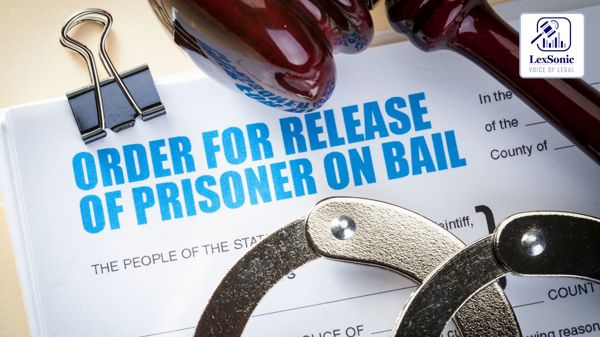Navigating the Legal Maze: Default Bail, Jurisdictional Disputes, and the Case of the Special Judge.
26 July 2024
Bail and Antcipatory Bail >> Criminal Law | Criminal Appeals & Suspension of Sentence >> Criminal Law
In the complex world of criminal justice, few issues stir as much debate as the entitlement to default bail. This legal remedy, designed to safeguard an accused’s right to a fair trial, becomes a battleground of procedural intricacies and jurisdictional nuances. One particularly illuminating case involves a group of appellants challenging the rejection of their default bail applications by a Special Judge, a case that underscores the interplay between procedural law and jurisdictional authority.
The Case at Hand:
The legal conflict centres on a common order dated June 28, 2022, between Mahesh Raut & Others v/s National Investigation Agency, through its Superintendent, Mumbai & Another passed by a learned Special Judge at the National Investigating Agency (NIA) court in Greater Mumbai. This order dealt with applications for default bail under Section 167(2) of the Criminal Procedure Code (Cr.P.C.) from two sets of appellants involved in Special Case No. 414 of 2020. The appellants, who had faced significant delays in filing the charge-sheet against them, argued that their right to default bail was being unjustly denied.

Background and Legal Challenge:
The genesis of this case lies in FIR No. 04 of 2018, registered on January 8, 2018, involving serious charges under the Indian Penal Code (IPC) and the Unlawful Activities (Prevention) Act (UAPA). The appellants were arrested on June 6, 2018, and produced before the court for their first remand on June 7, 2018. However, the investigation faced delays, prompting the authorities to seek extensions for filing the charge-sheet.
Key to the appellants' argument was the claim that the extension granted on September 2, 2018, by the Additional Sessions Judge, did not comply with the statutory requirements of Section 43D(2)(b) of UAPA. The appellants contended that this failure to adhere to proper procedural norms rendered their detention unlawful after the initial 90-day period, thereby entitling them to default bail.
The legal landscape further complicated as the issue of jurisdiction emerged. The appellants argued that the extension of the detention and the time to file the charge-sheet had been handled by an Additional Sessions Judge, whereas a designated Special Judge should have exercised this authority. This jurisdictional conflict became a central point of contention.
The Supreme Court’s Intervention:
The matter reached the Supreme Court, which on February 13, 2019, restored the order of September 2, 2018, granting an extension for filing the charge-sheet. The Supreme Court’s decision highlighted that, despite procedural irregularities, there had been substantial compliance with the statutory requirements. This ruling meant that the appellants were not automatically entitled to default bail based on the procedural issues alone.
However, the Supreme Court's decision did not close the case. The complexity of default bail continued to unravel as the appellants and their co-accused grappled with ongoing procedural disputes. The matter was revisited in subsequent judicial reviews and applications, including a significant judgment by a Division Bench of the Bombay High Court on December 1, 2021, which granted bail to some accused on jurisdictional grounds.
Implications and Analysis:
The crux of the case revolves around the intersection of procedural rights and judicial jurisdiction. The legal debate highlights how procedural lapses can impact the rights of the accused, and how jurisdictional authority influences the handling of such cases. The case also underscores the importance of adhering to statutory requirements to avoid complications in the judicial process.
In conclusion, the intricate details of this case illustrate the dynamic nature of criminal justice where procedural and jurisdictional issues can significantly impact the administration of justice. The evolving nature of legal interpretations and procedural requirements continues to shape the landscape of criminal law, reminding us of the delicate balance between safeguarding rights and ensuring legal compliance.
Unlawful Activities (Prevention) Act, 1967 EXPLOSIVE SUBSTANCES ACT, 1908 National Investigation Agency Act, 2008
